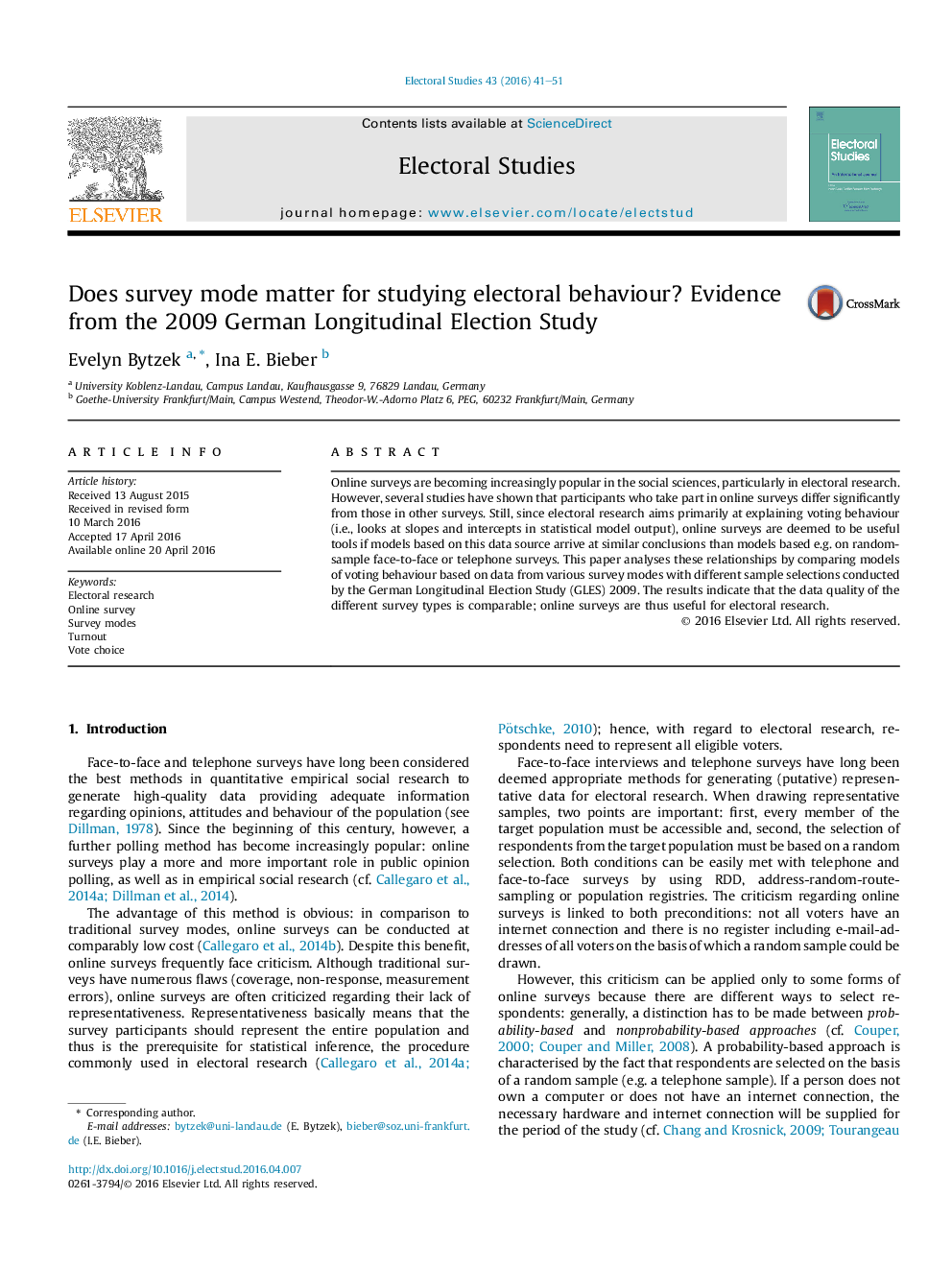| Article ID | Journal | Published Year | Pages | File Type |
|---|---|---|---|---|
| 7463586 | Electoral Studies | 2016 | 11 Pages |
Abstract
Online surveys are becoming increasingly popular in the social sciences, particularly in electoral research. However, several studies have shown that participants who take part in online surveys differ significantly from those in other surveys. Still, since electoral research aims primarily at explaining voting behaviour (i.e., looks at slopes and intercepts in statistical model output), online surveys are deemed to be useful tools if models based on this data source arrive at similar conclusions than models based e.g. on random-sample face-to-face or telephone surveys. This paper analyses these relationships by comparing models of voting behaviour based on data from various survey modes with different sample selections conducted by the German Longitudinal Election Study (GLES) 2009. The results indicate that the data quality of the different survey types is comparable; online surveys are thus useful for electoral research.
Keywords
Related Topics
Social Sciences and Humanities
Social Sciences
Geography, Planning and Development
Authors
Evelyn Bytzek, Ina E. Bieber,
